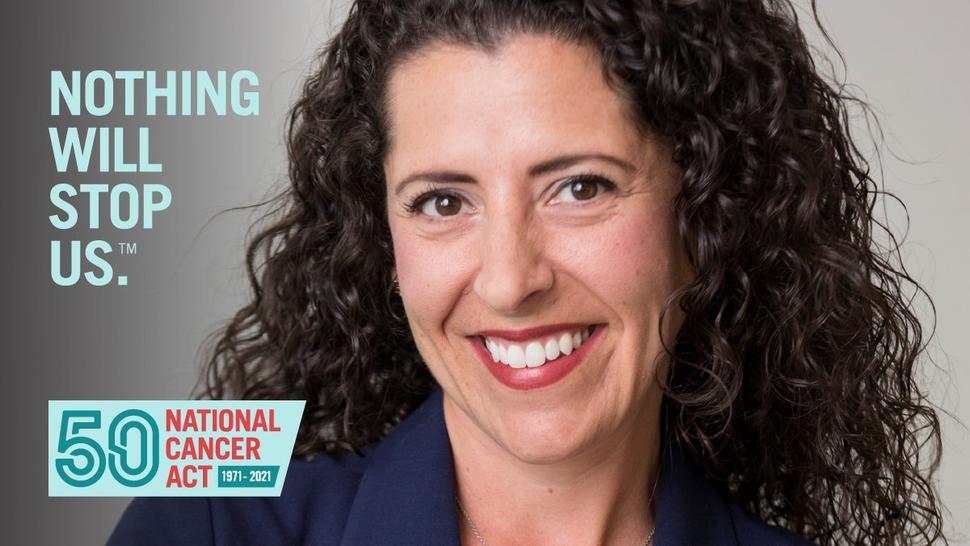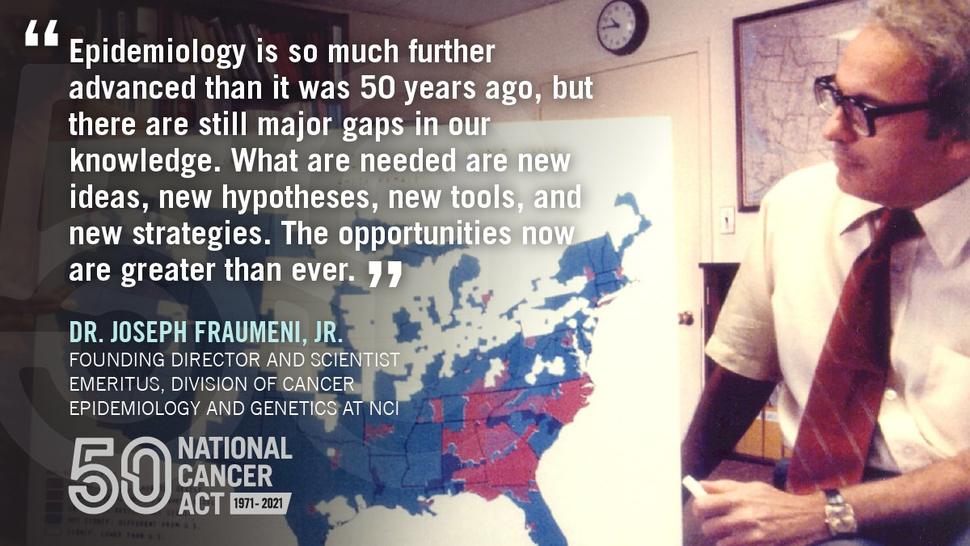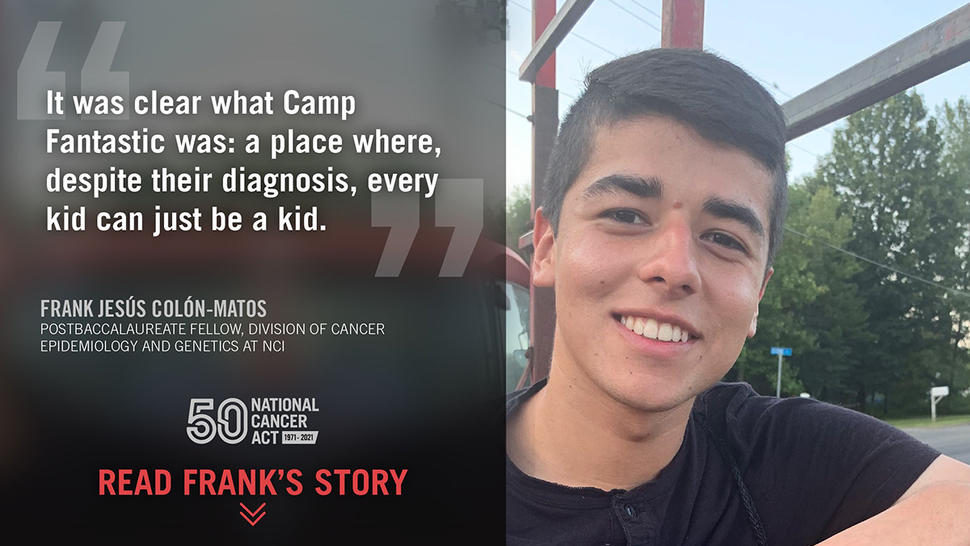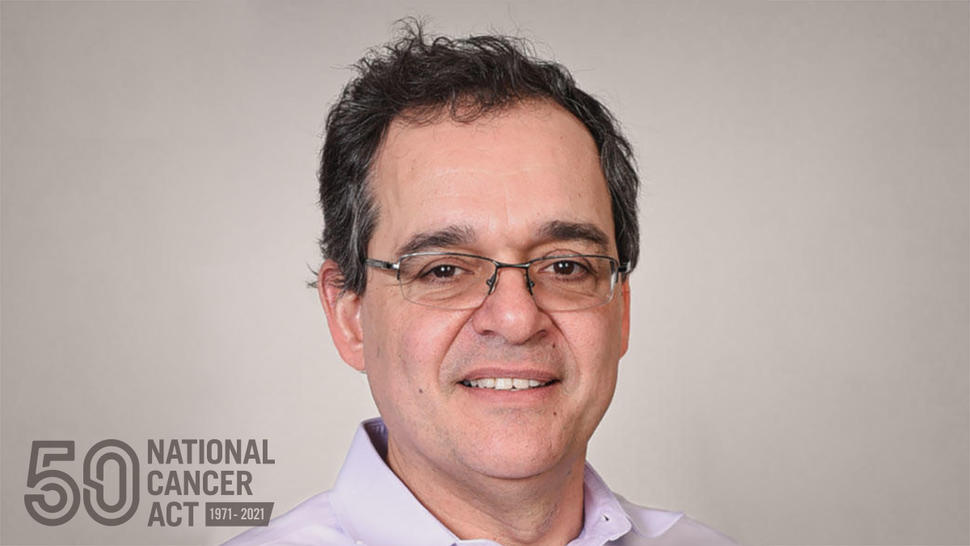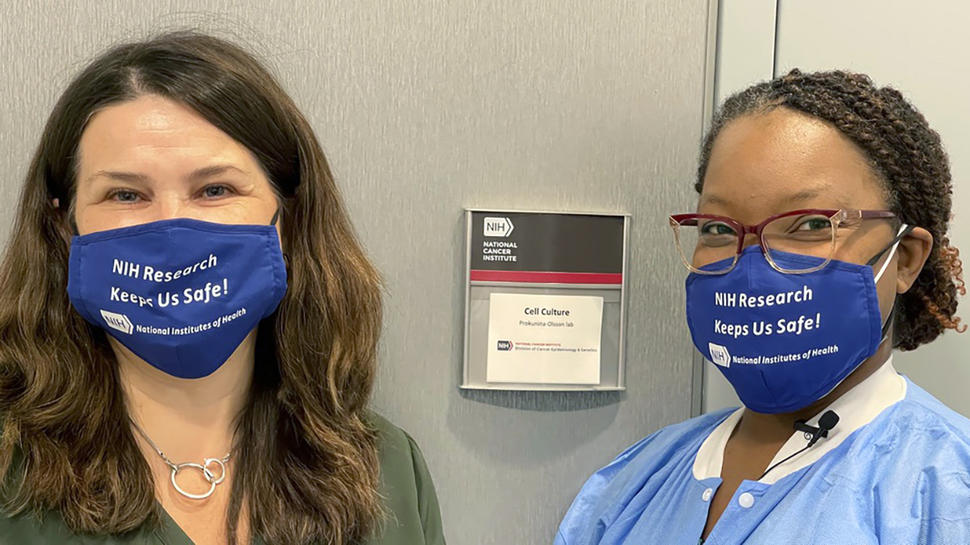DCEG Researchers Featured in Fifty Years of the National Cancer Act Commemoration
, by DCEG Staff
Several Division of Cancer Epidemiology and Genetics (DCEG) researchers have been featured this year during the commemoration of fifty years of the National Cancer Act (NCA). The research, mentorship, and outreach of the division would not be possible without the NCA.
Aimée Kreimer, Ph.D., senior investigator in the Infections and Immunoepidemiology Branch, was highlighted in April 2021 for her work on the human papillomavirus (HPV) vaccine trial in Costa Rica. Dr. Kreimer and her colleagues established that one dose of the HPV vaccine was as effective as three—leading the way for increased access and lower cost by eliminating the need for follow-up vaccination appointments. This work represents one important step toward eliminating HPV-associated disease and preventing cervical cancer in the future. Because of the NCA, which defined cancer as a global priority, international collaborations like this one became the norm in cancer research.
During July, for the ‘Discoveries That Help Us Understand Cancer’ topic, founding director of DCEG, Joseph F. Fraumeni, Jr., M.D., was spotlighted for developing the first computer-generated maps linking cancer and the environment. In the 1970s, Dr. Fraumeni used computers, a relatively new tool at the time, to create maps that showed cancer death groupings in U.S. counties. These maps revealed the link between cancer and the environment, a major breakthrough in the field of cancer epidemiology. He was an early advocate for disparities research, a legacy that DCEG continues to honor.
Data are the backbone of cancer research. Jonas Almeida, Ph.D., Chief Data Scientist and senior investigator in the Trans-Divisional Research Program, has believed in the power of data from a young age, saying, “[W]hen told in school that biology was too complex to be reproducible, I knew that wasn’t true. It can be solved through science using data!” His enthusiasm for data in cancer research was highlighted in August 2021 in the Cancer Data Science Pulse blog of the NCI Center for Biomedical Informatics and Information Technology to celebrate NCA50 and the Power of Data.
In September 2021, Francine S. Baker, M.S., postbaccalaureate fellow and iCURE scholar and Ludmila Prokunina-Olsson, Ph.D., Chief and senior investigator of the Laboratory of Translational Genomics (LTG) participated in the live social media event titled, Ask a Researcher: Working in a Cancer Research Lab. Using her cell phone, Ms. Baker gave viewers a video tour of LTG, the first look at the space that was completed during the pandemic. During the live Q&A portion, Dr. Prokunina-Olsson and Ms. Baker each discussed their journey to cancer research, the role of mentorship and training in shaping their careers and successes, and more.
Frank J. Colón-Matos, B.S., postbaccalaureate fellow in the Integrative Tumor Epidemiology Branch, was recently featured in an NCA50 Spotlight. As a survivor of childhood cancer, Mr. Colón-Matos is passionate about both his cancer research and outreach. In 2019, he participated as a counselor for Camp Fantastic, an annual camp for children with cancer, where he helped create an environment where “despite their diagnosis, every kid can just be a kid.”
